The spread of technology from foreign-invested enterprises (FDIs) to domestic businesses remains limited. Amid the vigorous progress of the Fourth Industrial Revolution and increasingly fierce competition, businesses need to strengthen their capacity to be ready for linkages, absorb technology and receive skill transfers while being more proactive in development and participation in global supply chains.
Removing bottlenecks in technology transfer
On average, over 7,500 new businesses are established in Binh Duong each year. Many of them participate deeply in regional and global production networks and value chains. In the first five months of 2025, the province attracted VND 63.42 trillion in registered domestic investment capital, up 32.7% year-on-year and US$ 795 million in foreign investment capital, 2.3 times higher than the same period last year.

In recent years, Binh Duong has consistently created favorable conditions to promote enterprise growth in both scale and quality, increasing their contribution to the province’s GRDP. The province also calls on the FDI sector to proactively support domestic enterprises in enhancing competitiveness, promoting technology transfer and expanding markets to narrow the gap in technological capability, product quality and competitiveness. To strengthen the linkage between domestic and FDI businesses, Binh Duong is also striving to increase policy support for the private sector to promote fair competition.
Recently, Cicor Vietnam Co., Ltd. welcomed a delegation of over 30 businesses from the Global Sourcing Association to visit its factory in Binh Duong. Participating companies came from diverse fields such as electronics, chemicals, machinery and technical solutions – all aiming for connection, cooperation and sustainable development within the supply chain. Nguyen Trong Luat, General Director of Cicor Vietnam shared about Cicor Group’s strong global development journey through its expansion and factory acquisition strategy. Digital transformation is becoming a solid foundation helping Cicor enhance its competitiveness.
According to the delegation, the factory visit showcased Cicor’s growth pace and globalization strategy as well as its application of technology and digital transformation in production, operational models and a professional working environment. The delegation's practical discussions will serve as direction for supporting the domestic market and future cooperation potential.
In an interview with us on promoting local enterprises to develop supply chains, Jesper Hassellund Mikkelsen, General Director of Lego Manufacturing Vietnam stated that the Lego factory in Binh Duong is not only a production base, but also a strategic investment for the future of the Lego Group. Lego plans to diversify its supply chain in Vietnam and is ready to cooperate with local suppliers. The company has a dedicated team responsible for seeking business opportunities with Vietnamese enterprises. Lego also plans to purchase wind or solar power via Vietnam’s national grid once the supply becomes available. When working with local contractors in providing materials and services, Lego will apply several criteria to evaluate and select partners. Specifically, the first and foremost criterion is product and service quality; the second is the safety standards of the suppliers; the third relates to delivery and production timelines and the fourth is price.
"Another very important criterion that the Lego Group places great emphasis on is the criterion of sustainable development. Lego always hopes for and also requires that contractors can participate in the process of sustainable development of the country as well as of the world. Therefore, this is also a key criterion for Lego to evaluate its suppliers", shared Mr. Jesper Hassellund Mikkelsen.
Prospects from connectivity
Trinh Thi Hong Chau, Vice President of the Electromechanical Association stated that although Binh Duong has actively opened its doors to many processing and manufacturing industries, the province's auxiliary industry remains limited to providing screws, plastic molds, spare parts, etc., for foreign partners. It is noteworthy that the auxiliary industry has not realized its potential yet as it is mainly comprised of small and medium-sized enterprises that face numerous difficulties in terms of market access, technology, human resources and capital.
"The low localization rate means that the annual volume of imported components for assembly and production in Vietnam for export reaches tens of billions of dollars. Moreover, auxiliary industry enterprises lack resources for innovation. Their ability to supply high-tech and complex technical components and spare parts does not yet meet the requirements for deep participation in the global production chain. In the future, we hope the Resolution 68 on private economic development will provide more capital resources and create linkages with the FDI sector so we have more space to grow", Mrs. Chau shared.
According to Luu Tri, General Director of Nghe Nang Co., Ltd., industrial manufacturing enterprises in general and auxiliary industries in particular are in great need of support from all-level authorities and sectors, especially from associations that play the role of bringing together businesses from various fields, acting as a focal point to connect demands among enterprises, facilitating cooperation to increase production capacity, improve product quality, expand customer networks and boost product consumption.
In the near future, Binh Duong will continue promoting investment in infrastructure construction for industrial zones and clusters under the plan, along with the development of key transport routes. The province will also establish a system of inland water ports, dry ports, and multimodal logistics centers. A particular focus will be placed on building science-technology industrial zones and clusters towards reducing greenhouse gas emissions. |
Reported by Tieu My-Anh Tuan-Translated by Kim Tin










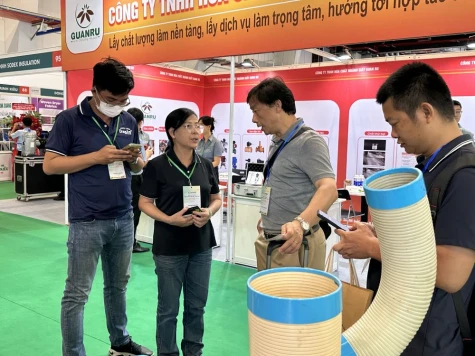
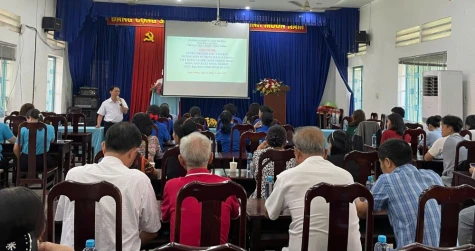



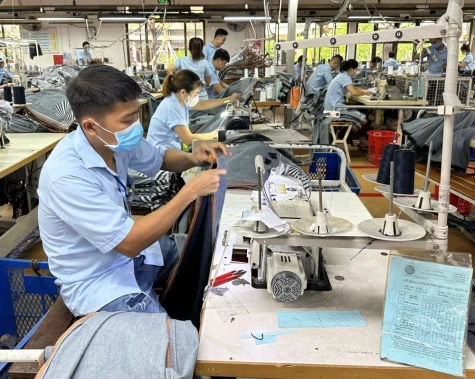
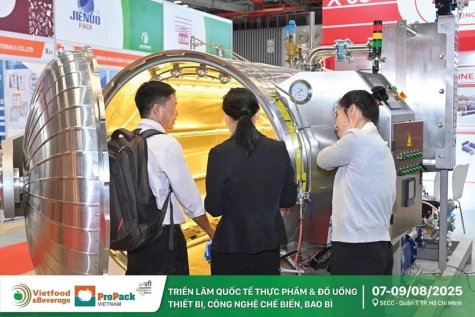


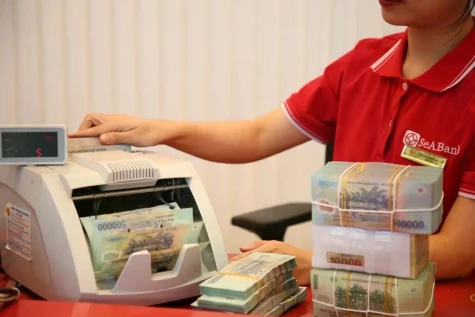

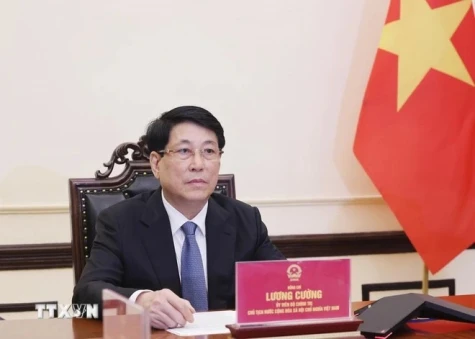





Xem thêm bình luận